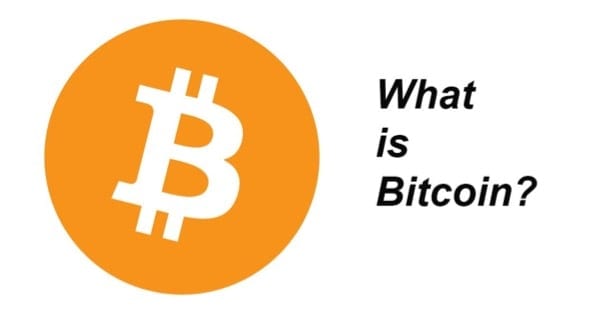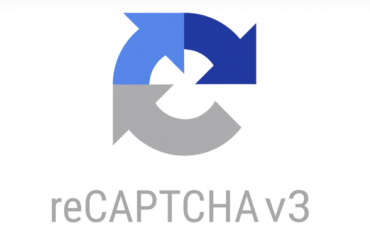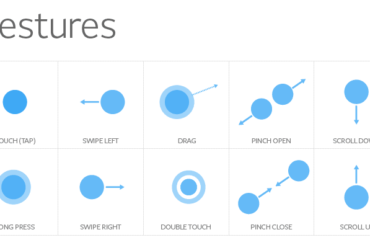So the new topic that is raving all over within the news and around the water cooler is Bitcoins. Everyone wants to know what it is, how to use it and is it even worth it?
So to start the definition that investor should be familiar is :
Bitcoin is a crytocurrency, a form of electronic cash.
It is a decentralized digital currency without a central bank or single adminstrator that can be sent from user to user on peer-to-peer bitcoin blockchanin network without the need for intermediaries.
I will explain how the system works, how you can use it for your profit, which scams to avoid. I will also direct you to resources that will help you store and use your first pieces of digital currency.
Small wonder that Bitcoin emerged in 2008 just after Occupy Wall Street accused big banks of misusing borrowers’ money, duping clients, rigging the system, and charging boggling fees. Bitcoin pioneers wanted to put the seller in charge, eliminate the middleman, cancel interest fees, and make transactions transparent, to hack corruption and cut fees. They created a decentralized system, where you could control your funds and know what was going on.
Bitcoin has come far in a relatively short time. All over the world, companies, from REEDS Jewelers, a large jewelry chain in the US, to a private hospital in Warsaw, Poland, accept its currency. Billion dollar businesses such as Dell, Expedia, PayPal, and Microsoft do, too. Websites promote it, publications such as Bitcoin Magazine publish its news, forums discuss cryptocurrency and trade its coins. It has its application programming interface (API), price index, and exchange rate.
Problems include thieves hacking accounts, high volatility, and transaction delays. On the other hand, people in third world countries may find Bitcoin their most reliable channel yet for giving or receiving money.
Key Highlights
- October 31, 2008: Bitcoin whitepaper published.
- January 3, 2009: The Genesis Block is mined.
- January 12, 2009: The first Bitcoin transaction.
- December 16, 2009: Version 0.2 is released.
- November 6, 2010: Market cap exceeds $1 million USD.
- October 2011: Bitcoin forks for the first time to create Litecoin.
- June 3, 2012: Block 181919 created with 1322 transactions. It is the largest block to-date.
- June 2012: Coinbase launches.
- September 27, 2012: Bitcoin Foundation is formed.
- February 7, 2014: Mt. Gox hack.
- June 2015: BitLicense gets established. This is one of the most significant cryptocurrency regulations.
- August 1, 2017: Bitcoin forks again to form Bitcoin Cash.
- August 23, 2017: SegWit gets activated.
- September 2017: China bans BTC trading.
- December 2017: First bitcoin futures contracts were launched by CBOE Global Markets (CBOE) and the Chicago Mercantile Exchange (CME).
- September 2018: Cryptocurrencies collapsed 80% from their peak in January 2018, making the 2018 cryptocurrency crash worse than the Dot-com bubble’s 78% collapse.
- November 15, 2018: Bitcoin’s market cap fell below $100 billion for the first time since October 2017.
- October 31, 2018: 10-year anniversary of Bitcoin.
Understanding Bitcoin – What is Bitcoin in-depth?
At its simplest, Bitcoin is either virtual currency or reference to the technology. You can make transactions by check, wiring, or cash. You can also use Bitcoin (or BTC), where you refer the purchaser to your signature, which is a long line of security code encrypted with 16 distinct symbols. The purchaser decodes the code with his smartphone to get your cryptocurrency. Put another way; cryptocurrency is an exchange of digital information that allows you to buy or sell goods and services.The transaction gains its security and trust by running on a peer-to-peer computer network that is similar to Skype, or BitTorrent, a file-sharing system.
Bitcoin Transactional properties:
1.) Irreversible: After confirmation, a transaction can‘t be reversed. By nobody. And nobody means nobody. Not you, not your bank, not the president of the United States, not Satoshi, not your miner. Nobody. If you send money, you send it. Period. No one can help you, if you sent your funds to a scammer or if a hacker stole them from your computer. There is no safety net.
2.) Pseudonymous: Neither transactions or accounts are connected to real-world identities. You receive Bitcoins on so-called addresses, which are randomly seeming chains of around 30 characters. While it is usually possible to analyze the transaction flow, it is not necessarily possible to connect the real world identity of users with those addresses.
3.) Fast and global: Transaction is propagated nearly instantly in the network and are confirmed in a couple of minutes. Since they happen in a global network of computers they are completely indifferent of your physical location. It doesn‘t matter if I send Bitcoin to my neighbor or to someone on the other side of the world.
4.) Secure: Bitcoin funds are locked in a public key cryptography system. Only the owner of the private key can send cryptocurrency. Strong cryptography and the magic of big numbers makes it impossible to break this scheme. A Bitcoin address is more secure than Fort Knox.
5.) Permissionless: You don‘t have to ask anybody to use cryptocurrency. It‘s just a software that everybody can download for free. After you installed it, you can receive and send Bitcoins or other cryptocurrencies. No one can prevent you. There is no gatekeeper.
Where can I find Bitcoins?
First, we would recommend you read this in-depth guide for buying Bitcoin.
You can get your first bitcoins from any of these four places.
- A cryptocurrency exchange where you can exchange ‘regular’ coins for bitcoins, or for satoshis, which are like the BTC-type of cents. Resources: Coinbase and Coinsquare in the US & Canada, and BitBargain UK and Bittylicious in the UK.
- A Bitcoin ATM (or cryptocurrency exchange) where you can change bitcoins or cash for another cryptocurrency. Resources: Your best bets are BTER and CoinCorner
- A classified service where you can find a seller who will help you trade bitcoins for cash. Resources: The definitive site is LocalBitcoins.
- You could sell a product or service for bitcoins. Resources: Sites like Purse.
Caution! Bitcoin is notorious for scams, so before using any service look for reviews from previous customers or post your questions on the Bitcoin forum.




